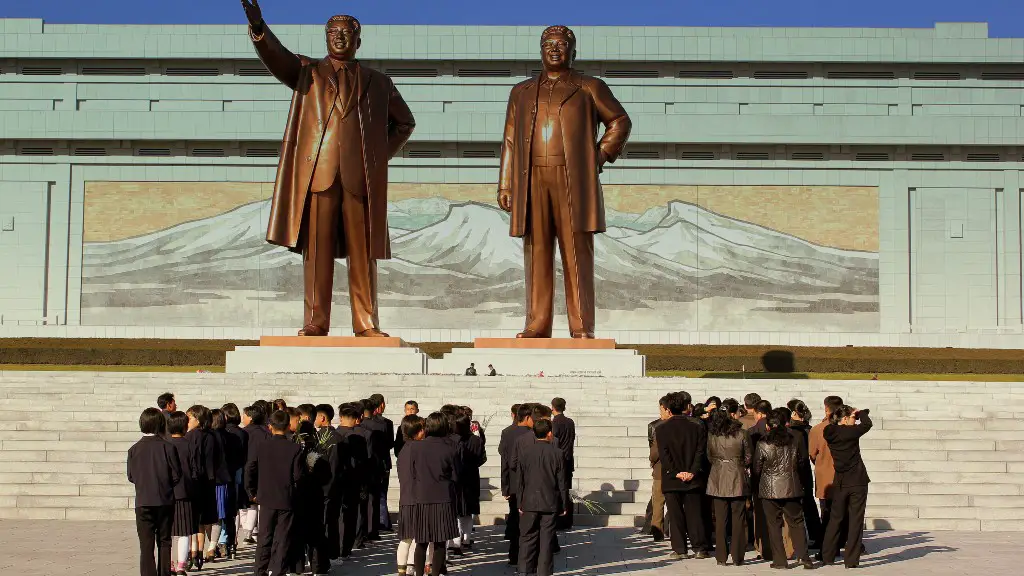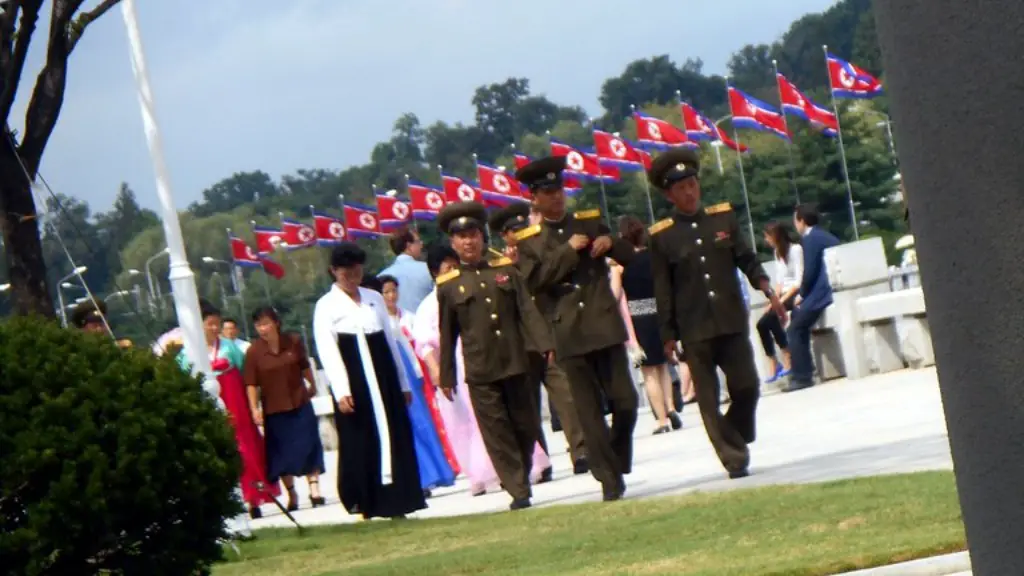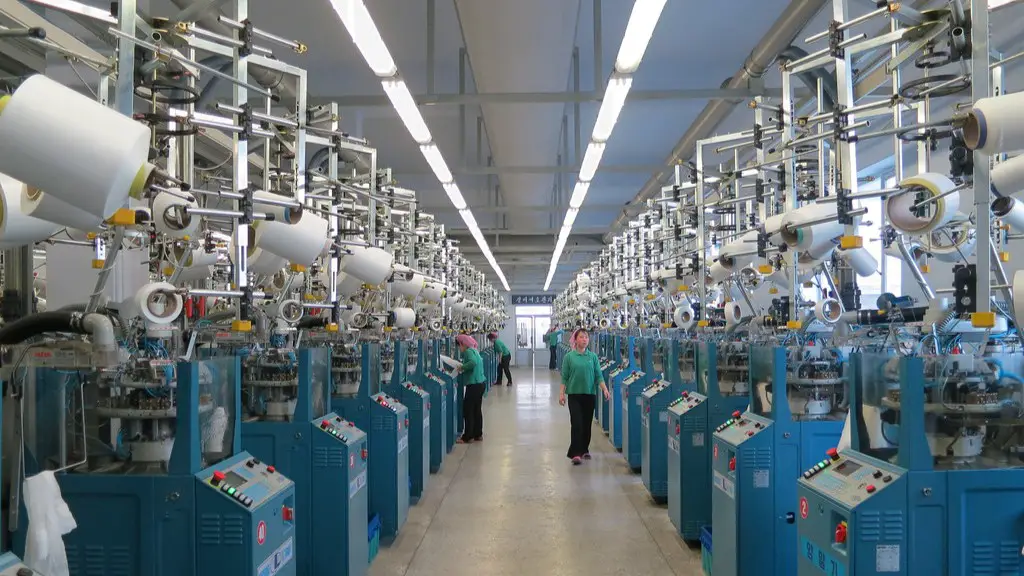For years, North Korea has been a source of numerous troubling incidents, human rights violations, and an overall negative presence in the global community. The country has an extremely oppressive government and a track record of launching nuclear weapons tests and other provocations that have threatened the security of the rest of the world. However, despite the clear danger North Korea poses, it doesn’t seem as though any of the larger world powers are doing anything to help contain or curtail their activities. This begs the question: why does no one do anything about North Korea?
The range of issues posed by North Korea goes far beyond just its nuclear tests. The country is currently in the midst of a famine of its own making, as the government has long diverted resources from food production in order to build its nuclear weapon and other military forces. Human rights abuses are rampant, as the regime continues to arbitrarily imprison and execute its citizens for dissent and other minor offenses. In addition, the country has long pursued one of the most secluded international policies of any nation, which has stunted its ability to become a productive member of the world community.
The explicit answer to why no one is doing anything about North Korea is complicated. Many of the larger countries, such as the United States, view the possibility of engaging in any sort of conflict in the region as too risky, especially considering the fact that North Korea already possesses nuclear weapons. In addition, North Korea is heavily reliant on China for economic and diplomatic support, and many of the large powers are unwilling to upset the delicate balance China has created in the region.
In addition, there is no real consensus in the international community about what should be done about North Korea. The United Nations has enacted a number of sanctions against the country, but they have proven ineffective in the face of Chinese resistance. Some countries, such as the United States, favor more confrontational tactics, such as increased economic sanctions or military action. However, such moves are viewed by many as too risky and potentially counterproductive.
Thus, it seems that for the time being, the issue of North Korea will remain unresolved. In the face of the international community’s unwillingness to act, the country will continue its current trajectory, for better or for worse. The international community can only hope that the country’s oppressive government does not cause any further damage to its citizens or to the world at large.
The Human Cost of Inaction
The true cost of inaction towards North Korea may never be known, as the potential harms that could come from a more vigorous intervention are hard to predict. However, it is certain that North Korea’s citizens are suffering immensely due to the government’s oppressive policies, and this hardship will only worsen as long as the international community fails to act. Reports estimate that anywhere from 300,000 to one million people have starved due to the country’s policies, while the average life expectancy continues to shrink.
The country’s human rights abuses are also well documented and have been described as “among the worst in the world.” The government operates a system of prison camps for political prisoners, and dissent is effectively criminalized. Human rights monitors have reported numerous cases of torture, enslavement, and execution, and these cases are likely just the tip of the iceberg, as any true evaluation of the situation is all but impossible.
In addition, the lack of an international response to North Korea has allowed other countries in the region to act with impunity and without fear of repercussions. South Korea has long been accused of ignoring human rights abuses in its own country, and China has continued to support North Korea and its policies despite awareness of the extreme suffering and oppression its citizens endure.
The Role of Economic Isolation
The reality is that any kind of meaningful engagement with North Korea is unlikely to happen unless the country is economically isolated and its leadership feels compelled to change its ways. Sanctions from the international community have limited the country’s access to international markets and currencies, but this has not been enough to change the mindset of the government or its population.
One area in which economic pressure could have an impact is curtailing the country’s oppression of its own citizens. The North Korean government has historically used the country’s poverty and desperation as a tool to control its population, and greater economic pressure could potentially force the leadership to make concessions on human rights.
However, it is unlikely that the international community will take any significant action to economically isolate North Korea. China is a major backer of the country, and as long as they maintain their support, the North Korean government will be able to carry on as it has. Furthermore, the possibility of North Korean refugees entering other countries in the region could cause a destabilizing influx of people who may have difficulty assimilating.
International Diplomacy’s Stalled Impact
Though negotiations, diplomacy, and international pressure have long been the primary tools employed to influence North Korea, their efficacy has been limited. In recent years, talks and negotiations between North Korea and the United States have stalled and fallen apart, as the country demands economic incentives and other concessions as part of any agreement. These demands have at times been seen as unrealistic, and the absence of meaningful discussion has only served to harden the positions of both sides.
In addition, efforts to engage in talks with North Korea have received opposition from some of the larger powers in the region. In particular, Japan has been vocal in its opposition to any kind of softening of sanctions or negotiations with North Korea, and it’s unlikely that any meaningful progress will be achieved as long as Japan continues to adopt a hard line stance.
The United Nations has also been unable to make progress in the region, as any resolutions aiming to rein in North Korea’s activities have been vetoed by China. As long as China remains unwilling to help contain North Korea’s weapons program, it is unlikely that the international community will be able to make any meaningful progress.
The Need for a Comprehensive Solution
Ultimately, the international community needs to come up with a comprehensive solution to the North Korea problem that involves the participation of all of the major powers in the region. In particular, China must be included in the conversation, as its influence over North Korea is too great to ignore. If all of the major powers can come together and commit to a unified approach, then real progress towards ending the North Korean crisis may be achievable.
In the short term, efforts must be made to relieve the suffering of the North Korean people, who are the victims of the country’s oppressive policies. Large-scale aid programs and increased international pressure on the North Korean government could potentially force the leadership to relax its policies and embrace reform.
In addition, increased diplomatic pressure on North Korea could potentially force the country to make real concessions, as the government may be more willing to negotiate if it is presented with a unified front. Thus, it is clear that international powers must come together to develop a unified strategy for dealing with North Korea before the situation spirals out of control.
The Potential for Change
Though it may be difficult to find an international consensus on the issue of North Korea, there is still a chance for real change. If all of the major powers can agree to a unified approach, then the North Korean government may be convinced to reform its policies. This could potentially lead to an improvement in the lives of the North Korean people and could also help to prevent conflict and military escalation in the region.
Furthermore, increased international pressure could lead to increased contact between North Korea and the rest of the world, which could potentially lead to increased economic and cultural ties between the two sides. In particular, increased trade with North Korea could help to support the country’s economy and allow the government to transition away from its reliance on military-focused policies.
Though it is uncertain what the future holds for North Korea, it is certain that there must be an international effort to address the country’s issues. The North Korean people are suffering immensely due to the actions of their government, and they need the world to intervene in order to bring about real change.





